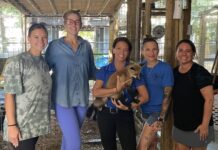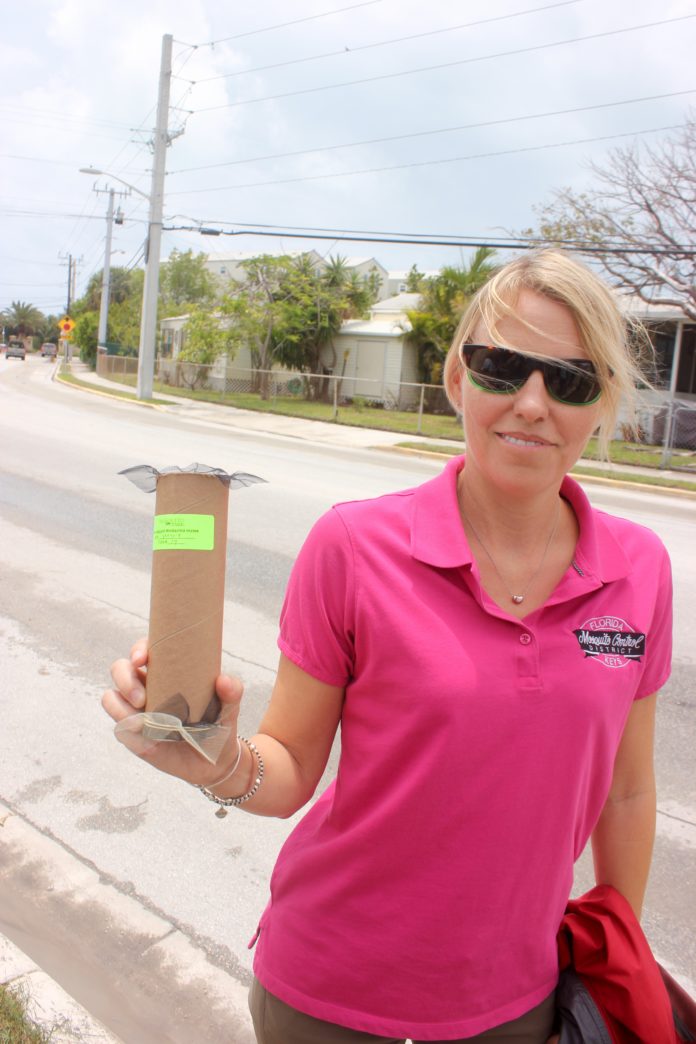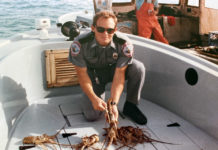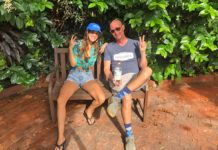Back in 2016, no one could stop talking about mosquitoes. In fact, they weren’t just local headlines but international news as well. The 2016 election brought turnover to the Florida Keys Mosquito Control District Board and resulted in a resounding “no” from voters in Key Haven as a trial site for genetically modified mosquitoes. And then the Zika scare hit. Tourists canceled trips all over Florida and pregnant women were terrified. But miraculously, the Keys saw fewer than a dozen travel-related cases. And then, media outlets everywhere hailed the Florida Keys Mosquito Control District as a preemptive organization to be mirrored. No one knew more or did more about mosquitoes than residents of the Keys.
While the headlines have faded for now, finding a solution to virus-carrying mosquitoes has not. Last April, the first test run of 20,000 Wolbachia-infected males from MosquitoMate were released on Stock Island. Tubes filled with 1,000 males contaminated with the bacterium were released, in hopes of reducing mosquito reproduction. These were not genetically altered mosquitoes; the bacterium renders them sterile.
“Mosquito Control (FKMCD) finished the first Wolbachia trial right before the hurricane,” said spokeswoman Beth Ranson. “The trial, in partnership with MosquitoMate, was more of a logistical trial than efficacy trial. Mosquito Control is talking with MosquitoMate about doing another trial in 2018. In the meantime, FKMCD is awaiting results from the first trial.”
As for the genetically modified Aedes aegypti mosquitoes Oxitec wanted to release in Key Haven? They have not been approved by either the EPA or the public. But Oxitec has submitted an application to the EPA to study the release and it could be approved in the future.
Ranson noted FKMCD broke ground on its new Lower Keys Operations Facility on Big Coppitt. “The facility was originally slated to be completed in March, but was pushed back until early May because of construction delays caused by Hurricane Irma,” she said. “The facility will include a chemical and maintenance building, as well as a trailer complex that will house administrative offices and a small mosquito identification lab.” Because of Irma, FKMCD has been granted a three-month lease extension on the Stock Island building and will not incur a rent increase in March.
There are 46 species of mosquitoes in the Florida Keys, ranging from the nuisance Salt Marsh Mosquito to the virus carrying Aedes aegypti. Disease-carrying mosquitoes make up 1 percent of the population throughout the Keys, but 20 percent to 25 percent of the population of Key West. These types of mosquitoes tend to thrive in urban areas as they only travel 150 yards from their breeding ground and can easily find food sources.






















